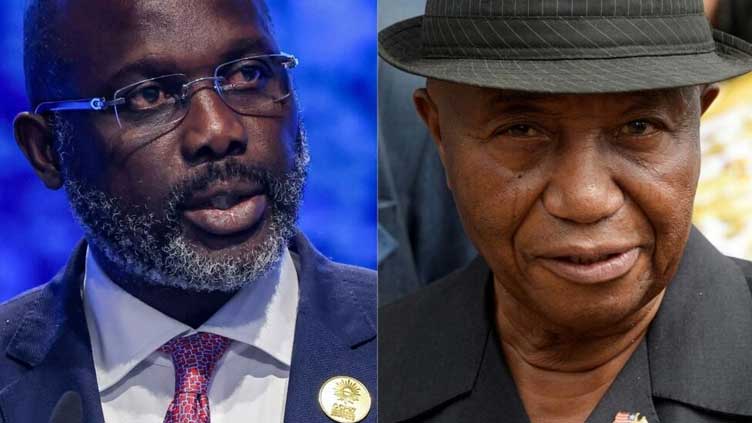Liberians mull second presidential term for football legend Weah

World
The run-off is expected to be close between the rivals, who also faced off in 2017
Monrovia (AFP) – Liberians head to the polls Tuesday to decide whether to hand former footballer George Weah a second term as president despite a controversial record, or to elect political veteran Joseph Boakai despite his age.
The run-off is expected to be close between the rivals, who also faced off in 2017 when Weah won in the second round with more than 61 percent.
In the first round of voting on October 10, Weah, 57, and Boakai, 78, came roughly neck and neck on more than 43 percent, with the incumbent taking a 7,126-vote lead.
This year's election is the first since the United Nations in 2018 ended its peacekeeping mission in Liberia, created after more than 250,000 people died in two civil wars between 1989 and 2003. Observers emphasise the importance of maintaining peace and accepting the final results.
"The 2023 elections undoubtedly represent a crucial milestone in the consolidation of peace and democracy in Liberia, and the wider region," the UN said in a statement.
More than 2.4 million people are registered to vote, with polls open between 8:00 am (0800 GMT) and 6:00 pm (1800 GMT).
They will choose between an incumbent who remains popular among young people but must defend a controversial record in office, and an old hand who was from 2006 to 2018 the vice president under Nobel Peace Prize laureate Ellen Johnson Sirleaf, Africa's first woman president.
Boakai has held a multitude of positions in the public and private sectors, but his age is considered a handicap. The electoral commission has 15 days to publish the results but could do so sooner, one of its officials, Samuel Cole, said.
- Turnout -
Since the first-round results, the two political camps have focused on securing the votes of supporters of the 18 candidates who did not make it through. Edward Appleton, who came third, has backed Boakai, as have two of the other top six candidates.
Turnout could also be an important factor, said Lawrence Yealue, who runs the civil society group Accountability Lab Liberia. He expects a lower turnout than the record 78.86 percent on October 10, when the presidential vote was coupled with parliamentary elections.
Weah -- who grew up in the Monrovia slums to become the only African to win football's most prestigious individual award, the Ballon d'Or -- is widely seen as approachable and peaceful. He says he has supported education, built roads and hospitals, and brought electricity into homes.
He was president when the Covid-19 pandemic hit at a time when Liberia was still recovering economically from back-to-back civil wars and the 2014-2016 Ebola epidemic. His detractors say he is disconnected from the realities of skyrocketing prices and shortages.
More than a fifth of Liberians live on less than $2.15 a day, according to the World Bank.
'Misinformation'
Boakai blames Weah for corruption, which is endemic in Liberia and has worsened on the incumbent's watch, according to Transparency International. The former vice president has forged alliances with local barons, including former warlord and senator Prince Johnson, who supported Weah six years ago.
Clashes during the campaign left several dead and raised fears of post-election violence. Boakai on Sunday said a convoy carrying Prince Johnson and vice presidential candidate Jeremiah Kpan Koung was attacked with firearms.
Seven people were reportedly injured. Boakai's camp also denounced irregularities during the first round. International observers welcomed the smooth running of the first-round vote, in a region where democracy has been shaken by a series of coups. But the campaign was also marked by disinformation.
The United States, an important partner, has warned that it could restrict visas for "those believed to be responsible for, or complicit in, undermining democracy in Liberia, including through the purposeful spread of mis- or disinformation".


